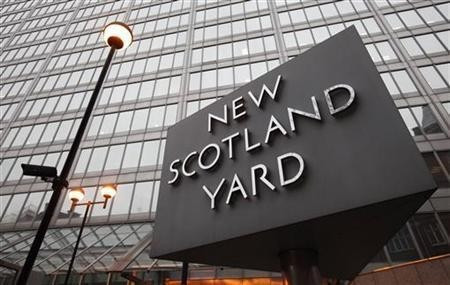Rape Victims 'Encouraged by Police to Drop Allegations'

Rape victims have been pressurised by detectives into withdrawing allegations to boost police performance ratings, a report has found.
The Independent Police Complaints Commission (IPCC) said the specialist Metropolitan Police's Southwark Sapphire squad "encouraged" woman to withdraw their allegations in order to boost their detection statistics.
The damming IPCC report said that the unit, which investigates claims of serious sexual violence, had participated in "wholly inappropriate" and "deeply disturbing" tactics in order to improve officers' detection rates.
The watchdog said Southwark Sapphire was underperforming and overstretched. Its working practices between July 2008 and September 2009 were examined.
It was during this period that officers of all ranks, often unfamiliar with sexual offence work, felt pressurised to improve performances and meet targets for the struggling unit, said IPCC researchers.
The report found that women were often repeatedly asked if they had consented to sex and were encouraged to withdraw their complaints.
The report found one woman was pressurised to drop her case against a man who then went on to murder his two children.
Jean Say was jailed for life in December 2011 after he killed his 10-year-old son and eight-year-old daughter when they went to stay with him at his flat in Southwark.
A 2008 rape allegation against him was dismissed by a detective from the Sapphire unit who said the circumstances did not constitute rape because the woman consented.
No doubt from the evidence
The report said: "There is no doubt from the evidence that the woman made an allegation of rape at Walworth police station which should have been believed and thoroughly investigated."
The IPCC described the unit's tactics as a "classic case of hitting the target but missing the point".
IPCC deputy chair Deborah Glass said: "The approach of failing to believe victims in the first instance was wholly inappropriate. The pressure to meet targets as a measure of success, rather than focusing on the outcome for the victim, resulted in the police losing sight of what policing is about - protecting the public and deterring and detecting crime.
"The findings of our investigation into the rape reported in November 2008 were also deeply disturbing. The victim was failed by the people from whom she had sought help.
"Since 2009, when the unit came under central command, Sapphire has changed considerably and continues to evolve.
Despite improvements, Glass said, suggestions that lessons had been learned "begins to ring hollow" in the light of a continued high failure rate by the Met.
The IPCC has carried out four previous inquiries into the unit, resulting in a total of nine investigations into the Metropolitan Police response to victims of sexual violence.
A police spokesperson said: "We have for some time acknowledged that previous investigations of rape and serious sexual assault in the MPS was below standard. The activities identified in this report came during that era and highlight specific issues within Southwark which resulted in unacceptable actions by local officers.
"It is as a result of such failings that we have made substantial changes to the investigation of rape and serious sexual assault, both in terms of structure and revised working practices."
© Copyright IBTimes 2025. All rights reserved.






















